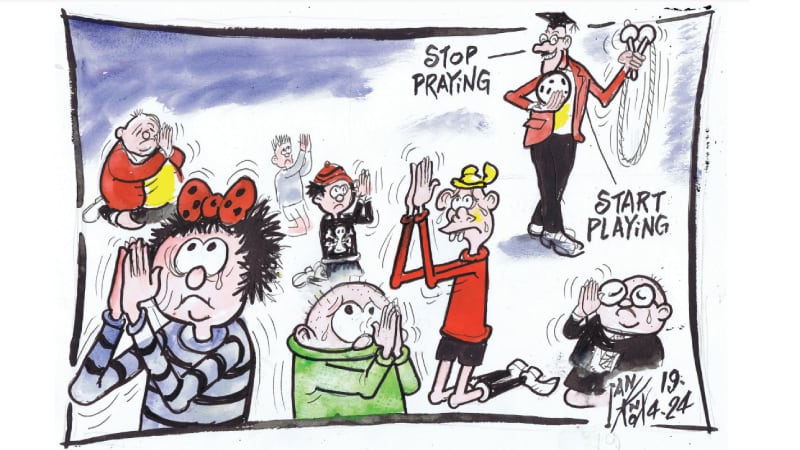ALL Ireland today mourns the passing of their great spiritual leader, Cardinal Joseph MacRory, Archbishop of Armagh and Primate of All Ireland. His Eminence, who was eighty- four, died at his residence, Ara Coeli, Armagh in the early hours of Saturday morning after receiving the last rites of the Church.
Cardinal MacRory was an Ulsterman by birth and descent, belonging to an old and respected Northern Catholic family. He was born in Ballygawley, County Tyrone in 1861. He attended St Patrick's Seminary, Armagh and later Maynooth where he gained high honours, achieving a name for diligence and ability.
Dr MacRory was ordained in 1885, beginning his career as a professor in the Dungannon Academy. In 1887 he was selected as Professor of Moral Theology and Sacred Scripture in the English Catholic Seminary, Oscott College, Birmingham. In 1912 he was appointed Vice-President of Maynooth.
In November 1915 he was appointed Bishop of the Diocese of Down and Connor. Ten members of the Irish hierarchy, led by Cardinal Logue, attended the ceremony in St Patrick's Church, Belfast. For thirteen years Dr MacRory remained bishop of the historic diocese. The First World War had been waging for a year when he came to Belfast.
It had scarcely finished when Ireland was plunged into a convulsion which made the country a seething furnace.
Throughout the terrible years of the pogrom against the Catholics of Belfast, Dr MacRory was unflinching in his stand against the cruel injustices perpetrated against his flock. He appealed to the authorities by voice and pen for the restoration of those driven from their homes and sought by every means to bring about a state of peace in which Catholics might be permitted to live and work in the city of their birth. Unfortunately, his words went unheeded by those who had it in their power to end the state of affairs.
At that time [1920-22] Bishop MacRory was residing at Trench House but, as the pogrom grew in strength, he acted upon the advice of friends and took refuge in St Malachy's College. In a speech at the College in 1933, the Cardinal said that during the troubled times of 1920-23 he was obliged to leave his own residence and take up his abode in the College because of a plot to assassinate him. While bishop, Dr MacRory took a deep interest in the language movement. In June 1928 he was translated to the Archbishopric of Armagh at the age of sixty- seven. (The leading Catholic Churchman in Ireland during the period spanning the 1916 Rising, partition and the Second World War, Joseph MacRory (1861-1945) was the product of a strong nationalist background in Tyrone. As bishop in Belfast he trenchantly condemned the expulsion of Catholics from the shipyards in 1920 and the activities of the new Ulster Specials. In 1921 he urged northern nationalists to use the Treaty as a basis to achieve a united Ireland. Privately, though, he favoured a Republic and remained friendly with de Valera. In 1931, however, he offended many Protestants by describing the Protestant Churches as 'not part of the true Church of Christ.' His last public statement before his death was a denunciation of partition.)
Edited by Eamon Phoenix e.phoenix@irishnews.com

